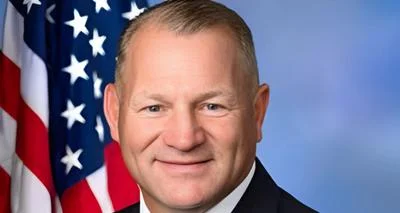The House Appropriations Committee convened to deliberate on the Fiscal Year 2026 Legislative Branch Appropriations Act. The committee approved the measure with a vote of 34 to 28.
Legislative Branch Subcommittee Chairman David Valadao (R-CA) expressed satisfaction with the bill's progress, stating, "After months of hard work preparing the FY26 bill as Chairman of the Legislative Branch Subcommittee, I’m proud to see it advance out of full committee markup. This bill not only ensures Congress has the resources needed to effectively serve the American people—it also reins in unnecessary spending and refocuses our priorities to reflect our core values. Most importantly, this legislation provides the necessary funding to support Capitol Police as they work to keep Members of Congress, visitors, and staff safe. I’m grateful to Chairman Cole for his leadership and guidance throughout this process, and I look forward to building on this momentum as the bill heads to the House floor.”
Chairman Tom Cole (R-OK) highlighted the bill's focus on constituents' needs: “Our greatest duty is to our constituents—and this bill reflects that. The FY26 Legislative Branch Appropriations Act makes targeted and responsible investments to strengthen the institutions that serve Americans. It protects key functions of our democracy, supports critical oversight responsibilities, and ensures the safety and accessibility of the Capitol complex. Under Chairman Valadao’s leadership, we’ve advanced a measure that upholds core missions and safeguards taxpayer dollars. It’s a clear commitment to transparency, accountability, and putting the people first.”
The appropriations act allocates $6.7 billion in discretionary funds—$51 million less than Fiscal Year 2025 levels and over $1.3 billion below Fiscal Year 2026 requests.
The act maintains legislative branch operations funding while emphasizing fiscal responsibility. Key measures include sustaining investments for congressional operations aligned with President Trump's legislative priorities; maintaining existing funding levels for Member offices; enhancing efficiency through streamlined research agencies; increasing Capitol Police funding; prohibiting technology purchases from certain foreign entities; requiring unspent funds for debt reduction; restricting contractor incentives for delayed projects; maintaining U.S. Capitol upkeep focusing on security; enforcing network restrictions against pornography; eliminating vehicle emissions requirements.
During discussions, Republican members supported an America First agenda by rejecting Democrat amendments aimed at removing congressional oversight or increasing spending without accountability.
Amendments adopted included technical changes by Valadao via voice vote and Aguilar's DACA employment eligibility amendment passed by a vote of 32 to 29.
###








